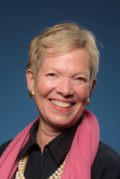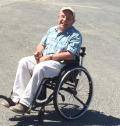Applied Linguistics and Professional Practice (ALAPP) 2021

The international and interdisciplinary conference on Applied Linguistics and Professional Practice (ALAPP) aims to bring together scholars from different disciplinary backgrounds, especially language and communication research, and professional specialities (e.g. business, organisation studies, education, banking, health care, therapy, journalism, law, social care and welfare, immigration and border control, police work, translation and interpreting). ALAPP is closely linked with Journal of Applied Linguistics and Professional Practice (JALPP) (Equinox), with a view to bringing seminal research to a wider readership.
Download the ALAPP 2021 Abstract book here:
Conference Details

Professor Brian James Baer is Professor of Russian and Translation Studies at Kent State University and Leading Research Fellow at the Higher School of Economics in Moscow. He is founding editor of the journal Translation and Interpreting Studies, and co-editor of the Bloomsbury book series Literatures, Cultures, Translation, with Michelle Woods, and of the Routledge book series Translation Studies in Translation, with Yifan Zhu. He publishes widely on translation history, translation pedagogy and translation theory. His most recent publications include the monographs Translation and the Making of Modern Russian Literature (2016) and Queer Theory and Translation Studies: Language, Politics, Desire (2020); the collected volumes Researching Translation and Interpreting, with Claudia Angelelli (2015), Translation in Russian Contexts, with Susanna Witt (2018), Queering Translation, Translating the Queer, with Klaus Kaindl (2018), and Translating Texts: An Introductory Coursebook in Translation and Text Formations, with Christopher Mellinger (2019); and the translations Culture, Memory and History: Essays in Cultural Semiotics, by Juri Lotman (2019), Introduction to Translation Theory, by Andrei Fedorov (2021), and the novel Red Crosses, by Sasha Filipenko (2021). He is current president of the American Translation and Interpreting Studies Association and sits on the international advisory board of the Mona Baker Centre for Translation Studies at Shanghai International Studies University and of the Nida Centre for Advanced Research in Translation, Rimini, Italy.

Professor Ulla Connor is the Barbara E. and Karl R. Zimmer Chair in Intercultural Communication, Chancellor’s Professor of English, and Director of the International Center for Intercultural Communication at Indiana University Purdue University Indianapolis. In her research on writing and intercultural communication, Dr. Connor combines theories and methods from both linguistics, classical rhetoric, and psychology. Results of her intercultural research have been applied in ESL and EFL, intercultural business communication, and, most recently, the language of health care among U.S. immigrant populations.

Professor Guy Cook is Emeritus Professor of Language in Education at King’s College, London. He writes on language teaching, literary stylistics, ecolinguistics, applied linguistics, and discourse analysis, and has directed a series of research projects on the language of environmental debates. He was Chair of the British Association for Applied Linguistics 2009-2012 and co-editor of the journal Applied Linguistics 2004-2009.
Translation in the Second-language Classroom: New Rationales, New Research, New Pedagogies
Brian James Baer / Kent State University
In 2007, the US-based Modern Language Association issued a report on the teaching of foreign languages. A reaction to falling enrollments and funding cuts, the report recommended that instructors of foreign languages replace the goal of creating native speakers with the goal of creating language mediators. The recommendation offered one of the first and most compelling rationales for re-introducing translation and interpreting into the second language curricula, from which it had been banished for decades by the communicative method. This paper discusses this and other rationales for integrating translation and interpreting into the second language curriculum, examines the growing body of research on the effects of that integration, and offers recommendations for and examples of successful pedagogical approaches at the level of curriculum design and classroom activities.
Words Matter: You Can Bet Your Health On It
Psycholinguistic Discourse Analysis in Service of Chronic Disease Management
Ulla Connor / Indiana University Purdue University Indianapolis
The role of language is finally recognized as the key to a more effective patient-centered communication (e.g., American Diabetes Association Standards of Medical Care in Diabetes, 2019). An interdisciplinary research team at Indiana University-Purdue University Indianapolis, consisting of linguists, medical experts, and health care providers, took up the challenge in a grant-funded research project (2007-2012).
In this presentation, I describe the evolution of this research among those chronically ill with type 2 diabetes, from its discourse linguistic origins to translating the findings into implementation in health care practice. Linguistic feature systems were built from the analyses of patients’ talk to illustrate psychosocial factors/worldviews related to health and self-management. A language-based patient survey and communication strategies (The CoMac Communication System) were developed and tested in use by health care providers.
The presentation highlights the importance of an interdisciplinary, as well as interprofessional, approach required for truly “applicable” linguistic discourse analysis. Language does matter. In health care communication research, patient words are paramount, of course, but so is also understanding the “languages” spoken by collaborating professionals from other fields.
The Largest Map: the truth and falsity of taxonomic thinking
Guy Cook / King’s College, London
A character in Lewis Carroll's Sylvie and Bruno Concluded suggests that the best map is "the largest map", one with a scale of 1:1. It is the same as the reality it portrays.
By presenting phenomena as static discrete units, taxonomies map, but should not be mistaken for, reality. They have been widely used in the study of language and languages. They are also central to social and political thinking, the organisation of academic enquiry, and to everyday life.
For some, however, it has become fashionable to deride taxonomies as reductionist and incapable of describing the complexities and nuances of reality. It is implied that the proper object of study should be reality itself.
I shall critically examine this derision by bridging between language study and biology. The classification of species (including our own) has a long, tangled religious, philosophical and scientific history. It too is in crisis as new knowledge and beliefs wreak havoc with old certainties. The debates around this turmoil can shed light on our own concerns as linguists.
These problems are more than abstruse technicalities. They have deep political and social repercussions, elucidating contemporary concerns such as environmentalism, identity politics, animal rights, and posthumanism.
This is why the nature of taxonomies and their relation to reality deserves thorough and continuing interrogation.
Download the ALAPP 2021 Agenda here:
Engaging Qualitatively with Institutional and Professional Discourse
14 September 2021
The Ohio State University, Columbus, USA
Course Leader
Professor Srikant Sarangi, Aalborg University (Denmark) and Cardiff University (UK)
The aim of the Masterclass is to offer research-based conceptual, methodological and analytical insights into discourse analysis in institutional and professional settings such as health and social care, law, education, media, business and industry.
Language/communication-based studies – concerned with talk, text and other modalities (discourse, more generally) – have been carried out in the domains of professions and institutions/organisations over the past five decades, both within quantitative and qualitative research paradigms. In the qualitative tradition, researchers adopt different methodological and analytical perspectives when engaging with talk data (e.g. workplace encounters, research interviews, focus groups) and text data (e.g., websites, media representations, emails, documents).
The Masterclass comprises two lectures (focusing on an overview of mainstream traditions of professional and institutional/organisational studies and an appraisal of methodological and interpretive challenges facing the qualitative researcher. Within what can be broadly captured as ‘theme-oriented discourse analysis’ (Roberts and Sarangi 2005), the Masterclass will be primarily devoted to ‘activity analysis’ and ‘account analysis’ (Sarangi 2010) which are distinctive in at least three ways: mapping of structural, interactional and thematic trajectories; relationality concerning focal themes and analytic themes; and role performance vis-à-vis participant structure and rhetorical devices.
The Masterclass is targeted at both early career and experienced researchers across disciplinary boundaries with an interest in qualitative inquiry.
The Masterclass is free of charge for ALAPP conference participants.
Programme
09.00-09.30 Welcome and Introductions
09:30 - 11:00 Lecture 1: The interplay of institutional and professional orders of discourse: an overview of concepts and themes
11:00 - 11:30 Tea/coffee break
11:30 - 13:00 Engaging with institutional/professional discourse data from multiple perspectives
13:00 - 14:00 Lunch break
14.00-15.30 Forum discussion on issues raised by participants
Key Readings
Roberts, C. and Sarangi, S. (2005) Theme-Oriented Discourse Analysis of medical encounters. Medical Education 39: 632-640.
Sarangi, S. (2005) The conditions and consequences of professional discourse studies. Journal of Applied Linguistics 2 (3): 371-394.
Sarangi, S. (2007) The anatomy of interpretation: Coming to terms with the analyst’s paradox in professional discourse studies. Text & Talk 27 (5/6): 567-584.
Sarangi, S. (2010) Practising discourse analysis in healthcare settings. In I. Bourgeault, R. DeVries and R. Dingwall (eds) The SAGE Handbook of Qualitative Methods in Health Research, 397-416. London: Sage.
Sarangi S. (2017) Editorial: En‘gaze’ment with Text and Talk. Text & Talk 37 (1): 1-23.
Sarangi, S. (2019) Communication research ethics and some paradoxes in qualitative inquiry. Journal of Applied Linguistics and Professional Practice 12 (1): 94-121.
Sarangi, S. and Candlin, C. N. (2011) Professional and organisational practice: A discourse/communication perspective. In C. N. Candlin and S. Sarangi (eds) Handbook of Communication in Organisations and Professions, 3-58. Berlin: De Gruyter Mouton.
Sarangi, S. and Roberts, C. (1999) The dynamics of interactional and institutional orders in work-related settings. In S. Sarangi and C. Roberts (eds.) Talk, Work and Institutional Order: Discourse in Medical, Mediation and Management Settings, 1-57. Berlin: Mouton de Gruyter.
Feel free to contact TDAI-alapp2021@osu.edu for further details regarding submission guidelines or for additional information about the conference.
CALL FOR PROPOSALS
Proposal Submission Deadline:
August 6, 2021
We are pleased to announce the second call for proposals for the 11th International and Interdisciplinary Conference on Applied Linguistics and Professional Practice (ALAPP) that will be held virtually and hosted by the Translational Data Analytics Institute at The Ohio State University, in Columbus, Ohio, USA from 15-17 September 2021. The ALAPP Masterclass is scheduled on 14 September 2021.
ALAPP 2021 is open to proposals that broadly fall within the scope of Applied Linguistics and Professional Practice Studies.
Special themes include:
- Language, communication and the professions
- Institutions and professions
- Expertise and professional practice
- Information and Communication Technologies (ICT) in professional contexts
- Multimodality in professional practice
- Professional practice, discourse and the new media
- Ethics and professional practice
- Interpreting and translation in institutional/professional settings
- Language awareness and reflexivity in the professions
- Communication training for professionals
- Professional practice and communication in the age of globalization
- Research Methodologies
- Collaborative research across professional boundaries
- Challenges in communicating research findings
SUBMISSION GUIDELINES
Proposals are currently being accepted through EasyChair
For all submissions, clearly indicate:
- Abstract title, author names, and full institutional affiliations of the responsible (presenting) author and collaborating authors.
- Contact e-mail address and phone number for the responsible author.
- Up to three conference themes (feel free to indicate themes beyond the list above).
Proposals may include panels, individual oral/poster presentations and work-in- progress.
1) PANELS
Panels should address a common theme, content or methodological area, and will be scheduled for 90 minutes or multiples of 90 minutes.
In addition to individual proposals (no more than 250 words each), please also submit an overview description of no more than 300 words highlighting the panel’s content and objectives. Provide information about the panel members and the coordinator, stating full institutional affiliations and e-mail addresses.
2) INDIVIDUAL ORAL/POSTER PRESENTATIONS
Proposals for individual papers (no more than 250 words) must clearly indicate a preference for oral or poster presentation. Following the peer review process, the organizers will determine whether a proposal is selected for oral or poster presentation. Poster presenters must be physically present to discuss their work during the dedicated sessions. Oral presentations will be allocated 30 minutes (20 minutes for presentation + 10 minutes for discussion).
3) WORK-IN-PROGRESS
Proposals for work-in-progress should be no more than 250 words targeted at oral presentation. Individual presentations will be allocated 30 minutes (15 minutes for presentation + 15 minutes for discussion). This format is particularly suitable for early career researchers pursuing doctoral and postdoctoral studies and for experienced researchers undertaking/planning pilot projects or interested in reporting preliminary results. Please indicate clearly if your proposal falls into this category.
PROPOSAL SUBMISSION DEADLINE: 6 AUGUST 2021
PROPOSAL SELECTION CRITERIA
All proposals, except panel proposals, undergo a double blind peer-review process. The reviewers will have access to the names of panel coordinators and the panelists.
Please note that the ALAPP conference policy allows only one oral presentation per author. You may choose to submit more than one proposal, but normally only one proposal will be accepted for oral presentation. Any additional accepted proposals may be presented as poster(s).
There is no fixed template for writing proposals but authors are urged to consider the following criteria which will form the basis for peer review:
- originality of the topic and its relevance to the conference
- background contextualisation of the study
- relationship between title and content
- structural organisation
- theoretical/methodological appropriateness
- clarity of claims and relevance
Individual panels are reviewed in their entirety on the above criteria but also on the basis of their relevance to broader issues in applied linguistics and professional practice; the overall coherence of the proposal; and the usefulness of the panel to participants.
Decisions about acceptance/rejection will be communicated by July 2021. Following formal acceptance, the responsible (presenting) authors must register participation prior to the deadline set for publishing the conference program.
Registration
Organizing Committee
Clarissa Surek-Clark, English, Sociology, and CLLC
Julia McGory, Linguistics
Scott Schwenter, Spanish and Portuguese, and CLAS
Acknowledgements
Funding and support from:
The current time in Columbus, OH is
